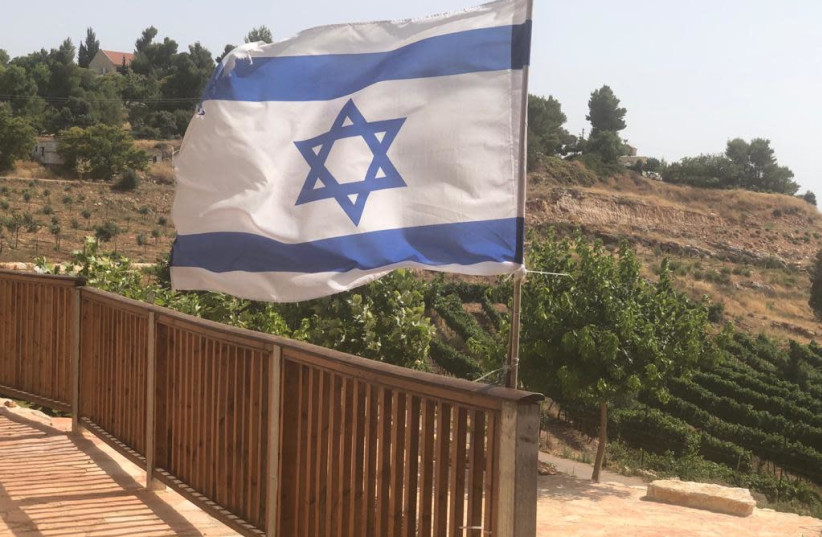As we mark the first anniversary of the Abraham Accords, we must also recall their backdrop. In January 2020, former US president Donald Trump chose to allow Israel to apply sovereignty over 30% of the areas of Judea and Samaria/the West Bank. Israeli analysts of diverse ideological leanings – including Israel Hayom’s Ariel Kahana and Walla’s Barak Ravid – concurred that the move did not materialize because Israeli support for it was lacking, as per the following account: Jared Kushner, the former president’s senior adviser, cognizant of Palestinian opposition, conditioned the move on broad Israeli consent, including from both the Blue and White Party and the right-leaning parties.
Former foreign minister Gabi Ashkenazi indeed quickly shared his disagreement with senior Trump administration officials, but Defense Minister Benny Gantz did not rule out partial annexation. However, senior Yesha Council leaders then loudly opposed the move. The Yesha Council argued that because Trump demanded Israel agree to negotiate with the Palestinian Authority based on his Peace to Prosperity plan in exchange for his green light, backing annexation implied agreeing in principle to the establishment of a Palestinian state in Judea and Samaria/the West Bank.
White House discussions concluded within a short time frame when there was no broad consent among Israelis and consequently annexation was suspended and the emphasis shifted to advancing a different diplomatic alternative, enjoying broader Israeli popularity: Israeli-Arab normalization. The utility of the Abraham Accords to the State of Israel is widely accepted among Israelis. Yet those loyal to the Land of Israel should reflect on the loss of a unique opportunity that presented itself to them. It sheds light on an inability to advance central religious Right’s values through categorical rejection of diplomatic proposals.
In our ongoing work with religious Zionist leaders – one of us firmly in the Israeli religious Right – and in meetings we conducted with senior rabbis and politicians on the right after Trump’s speech, we met many who wanted to view the plan positively. However, they felt they lacked the capacity to substantively tackle diplomatic proposals, displaying a sense that the theological and ideological language needed for such a response was not sufficiently thought through and clarified. No such language was developed within the religious Right in Israel so far because the default choice has been to reject international proposals based on the assumption that they seek to obliterate the settlement project. Trump’s plan underlined that this is not always the case.

There is a need for a language that would enable the religious Right to respond to this challenge with principled and substantive engagement. Yet there is almost no principled and halachic discussion on several foundational issues which we will list through hypothetical, demonstrative questions. The nature of borders: Had the proposal consist of broader annexation and a smaller Palestinian state, say only Area A, would it have met with a different reaction? Terminology: does the problem lie in the term – a Palestinian state? Character of the signatory entity: Assuming that a future proposal would be for a permanent agreement between the State of Israel and a Palestinian national autonomy, would the reply differ? Historic conception: Is the main difficulty associated with the fact that proposals were for final status agreements rather than time-limited agreements? Nature of the reward: Should one treat differently a proposal including drawing the general Jewish public closer to Jewish tradition? And what if the agreement expressed Abrahamic recognition of the State of Israel and the People of Israel as per the Abraham Accords with the Gulf countries? One can certainly point to further foundational issues that merit discussion and clarification, both halachically and ideologically.
A halachic-ideological discussion, not automatic rejection, is needed regarding the future of the Land of Israel. It indeed seems a proposal like that of the Trump administration will not resurface during US President Joe Biden’s term. But one cannot know what future American administrations will propose. Those committed to the Land of Israel should prepare for such a scenario and for other opportunities that cannot be predicted currently. The State of Israel would need to translate the ideological-religious moves that ignited and sustained the settlement project during nearly six decades into concrete diplomatic acts. Therefore, particularly in light of what those keen to strengthen Israel’s hold over Judea and Samaria would consider a missed opportunity, it is important to carefully explore: what precisely does one oppose and why? To what can one agree within the bounds of the halacha and Israel’s security needs? Responses to future diplomatic proposals should not be crafted emotionally on a whim but after profound study, research and exploration. Such study would allow to reply to proposals with “yes, but” rather than a “no” and thus advance the diplomatic conversation toward more fruitful directions.
The rabbinic and political leadership of Israel’s religious Right should discuss this issue in light of such questions. And it would be wise to do so now, seriously and prudently, not out of a sense of urgency and a need to quickly react to a concrete diplomatic proposal. Such a conversation can deliver a sound and thoughtful halachic and ideological basis for when the moment comes, which could help all concerned to adequately deal with future diplomatic proposals that are certain to present themselves.
The writers are senior advisers at the Herbert Kelman Institute for Conflict Transformation.
